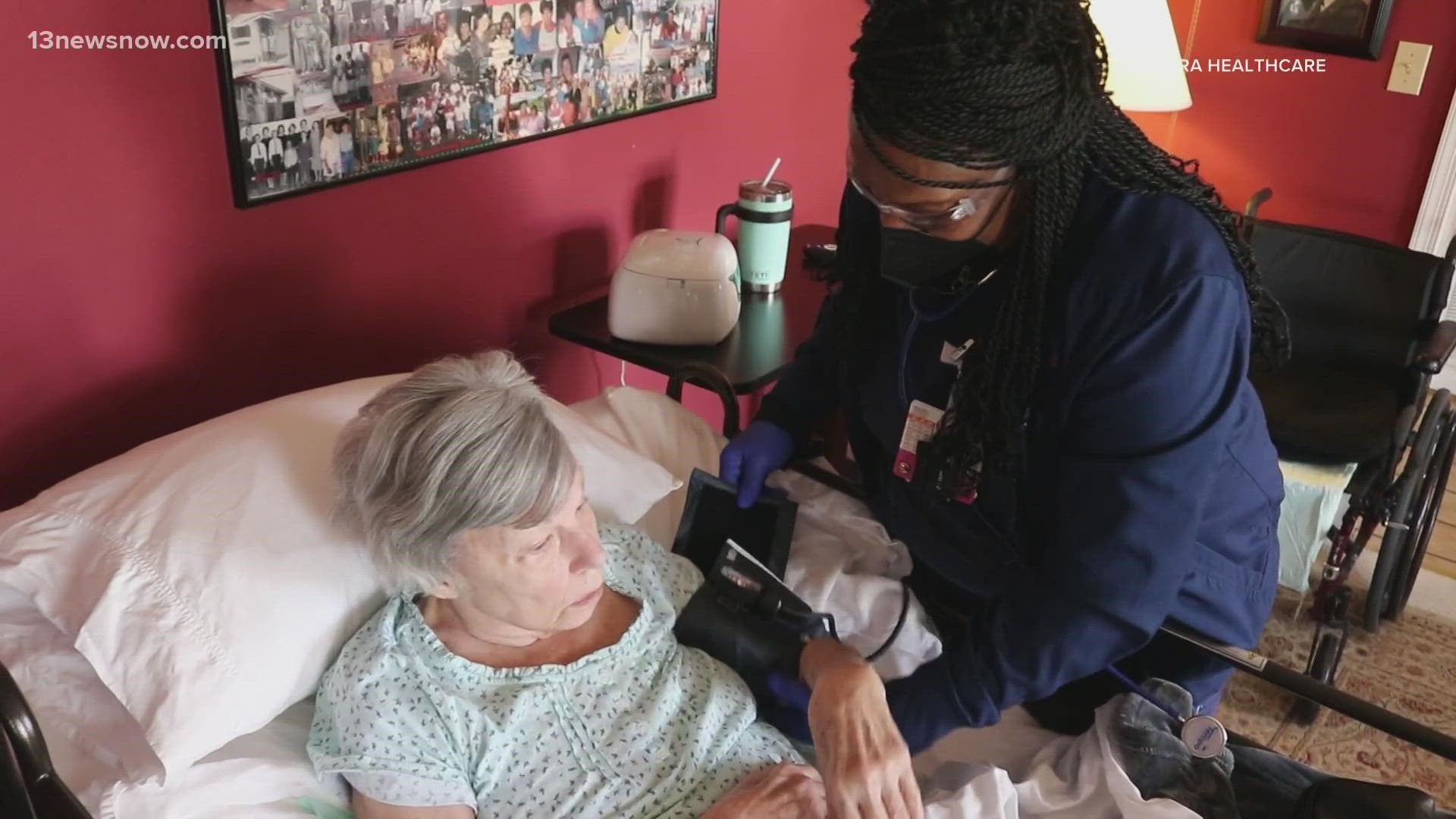VIRGINIA BEACH, Va. — Hospice care is oftentimes a difficult decision many families face.
Local doctors are looking to dispel myths surrounding end-of-life care.
Former U.S. President Jimmy Carter, 98, decided to enter hospice on Saturday. He wishes to spend his remaining time at home, in lieu of additional medical intervention and following a series of short hospital stays, according to the latest statement from The Carter Center.
In the last several years, President Carter fought skin cancer and suffered injuries from a bad fall.
At this sunset stage of his life, loved ones ask for privacy, yet express gratitude for the "concern shown by his many admirers."
"When I think about hospice care, I really do think about just how wonderful it is that now [President Carter] and his family are going to have the support that they need to help him through this phase of his life," said Dr. Jerry McQuain, medical director of Sentara Hospice Services.
Dr. McQuain thinks this moment also serves as an opportunity to shed light on a service he calls underutilized and oftentimes misunderstood. He stated Virginia ranks in the lower half of states, by order of hospice utilization.
McQuain explained people enrolled in hospice care are no longer seeking curative treatments. However, he said that does not mean all medications are stopped.
"We continue several medications as long as they're contributing to your comfort, your quality of life and your longevity of life," said McQuain.
"They have decided to simply focus on compassionate care, comfort care, quality of life care," he said. "Which includes better symptom management, better psychosocial support and spiritual support."
That support, McQuain said, takes place where the patient lives, whether at home or at a facility.
Nurse Cynthiyah Humphrey, for instance, visited 80-year-old Joyce Whitley in Virginia Beach. Whitley has late-stage Alzheimer's.
McQuain said those who opt for hospice are usually facing diagnoses such as dementia, cardiac issues and cancer.
"People live longer with hospice care than they do without hospice care when they're connected early on in the course of their illness," he said.
Moreover, McQuain is on a quest to change the public narrative.
"We need to change that narrative from hospice as a place where you go to die, to hospice as a place where you go, because you may pass away and within the next six months to a year," he said.
Additionally, he said bereavement support is a priority.
"That extends beyond the date of their death for about 13 months," McQuain said.
Assistance with anticipatory grief is also offered.
Sentara hospice care capacity right now well exceeds referrals, McQuain added. That of which, furthered his concern that it is underutilized.

